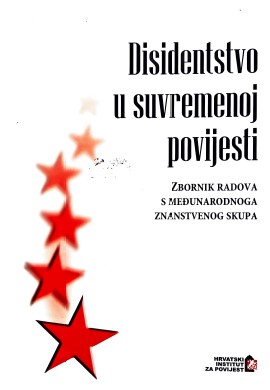Disidentstvo u Sloveniji
Dissidence in Slovenia
Author(s): Aleš Gabrič
Subject(s): Political history, Government/Political systems, Political behavior, Post-War period (1950 - 1989), History of Communism
Published by: Hrvatski institut za povijest
Keywords: dissidence; Slovenia; repression; Jože Pučnik; Franc Miklavčić;
Summary/Abstract: Despite more open borders toward the west and the easier flow of ideas into Yugoslavia and Slovenia political repression which had similar characteristics to the repression of dissidents in other communist Eastern European states occurred. During the first postwar period opponents to communist rule in Slovenia stemmed above all from the ranks of prewar politicians as well as the ranks of those who cooperated with the Communist Party in the Liberation Front (Osvobodilna fronta). Already during the 1950s a younger generation of intellectuals was maturing. They gathered around individual journals which experienced a similar fate – after a few years of publication they were suspended due to the intervention of the state, while legal actions were taken against some of their collaborators. This article presents the example of two intellectuals who because of their support for democratic principles were sentenced to several years in jail. Jože Pučnik belonged to the younger generation of postwar intellectuals, in journals he published criticisms of several mistakes made by the postwar authorities and because of this he was sentenced to several years in jail. From an intellectual who joined the League of Communists because he believed that the system could be reformed he became the best known Slovene dissident. After serving his jail term in Slovenia he emigrated because he could not obtain a suitable position, but he returned in the late 1980s and became an important actor in the democratization of Slovenia. The second case discussed is that of Franc Miklavčić, who remained true to the tradition of Christian socialism and never became a member of the League of Communists. The court sentenced him to jail because he wrote in the emigrant Slovene press and because of a democratic political programme which he did not even publish. His case drew more attention abroad than in Slovenia, and he was released from jail early due to the exertion of foreign media pressure on the Yugoslavian government.
Book: Disidentstvo u suvremenoj povijesti
- Page Range: 129-145
- Page Count: 17
- Publication Year: 2010
- Language: Croatian
- Content File-PDF

